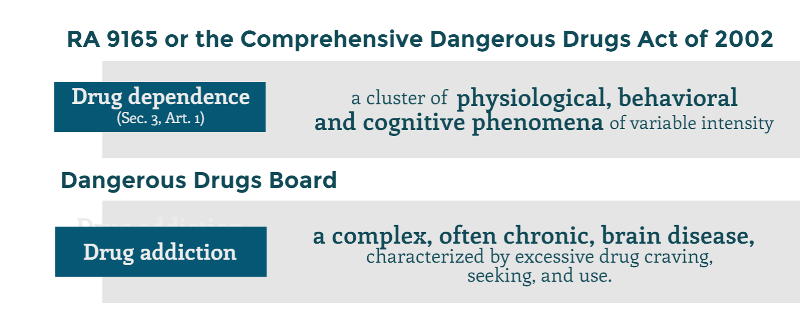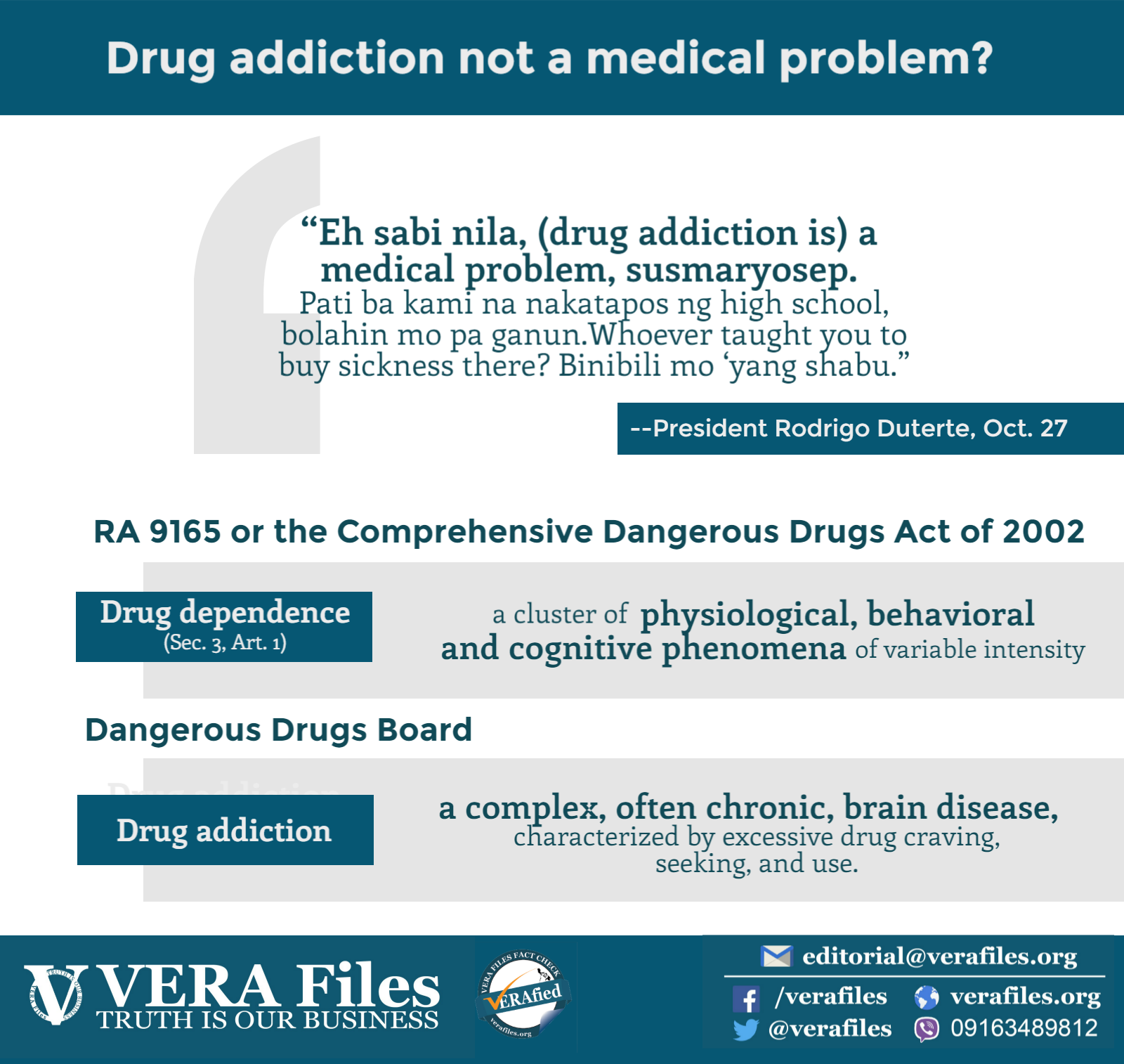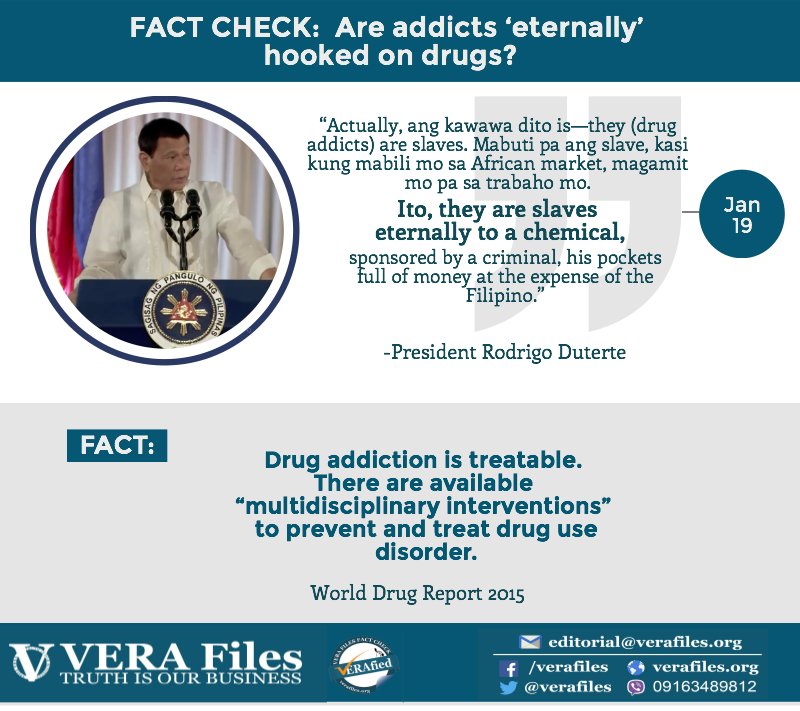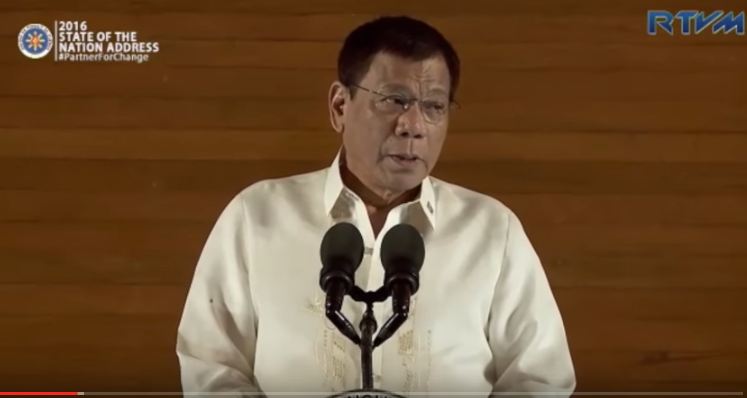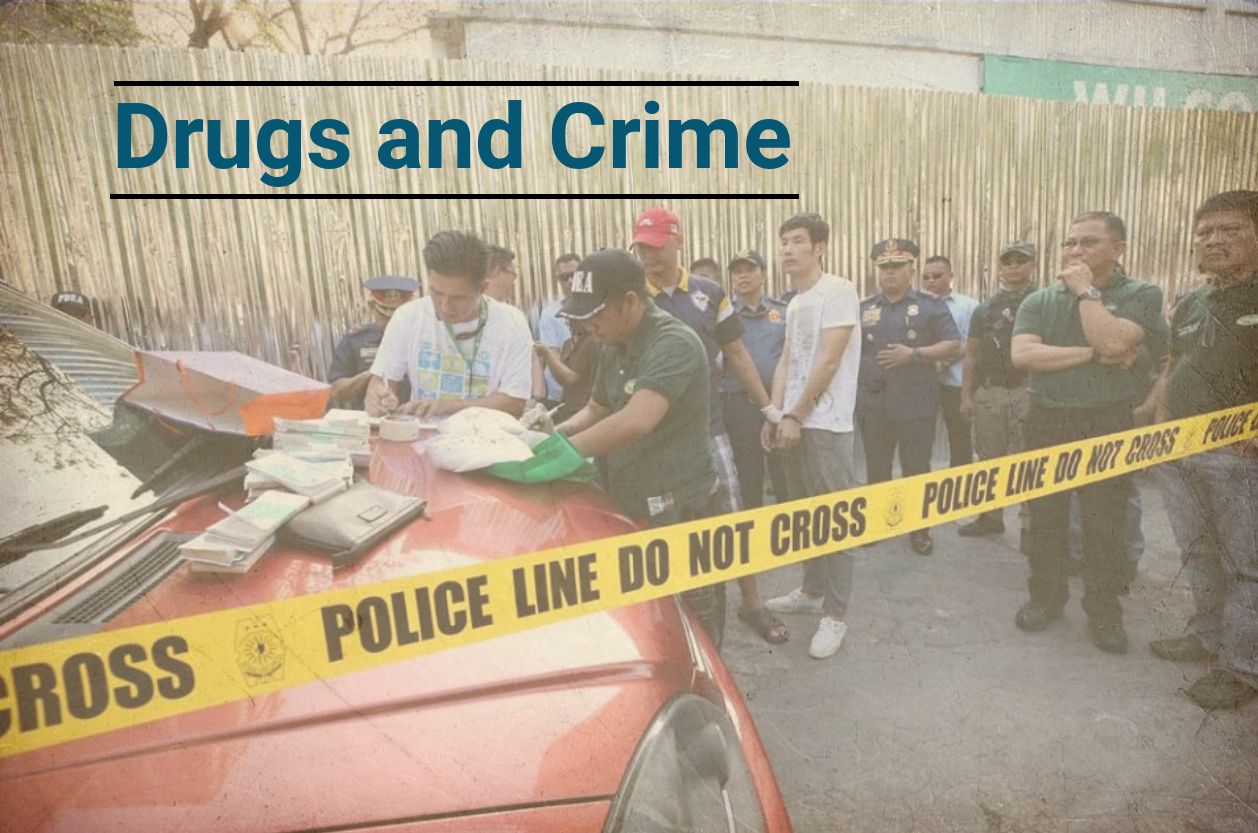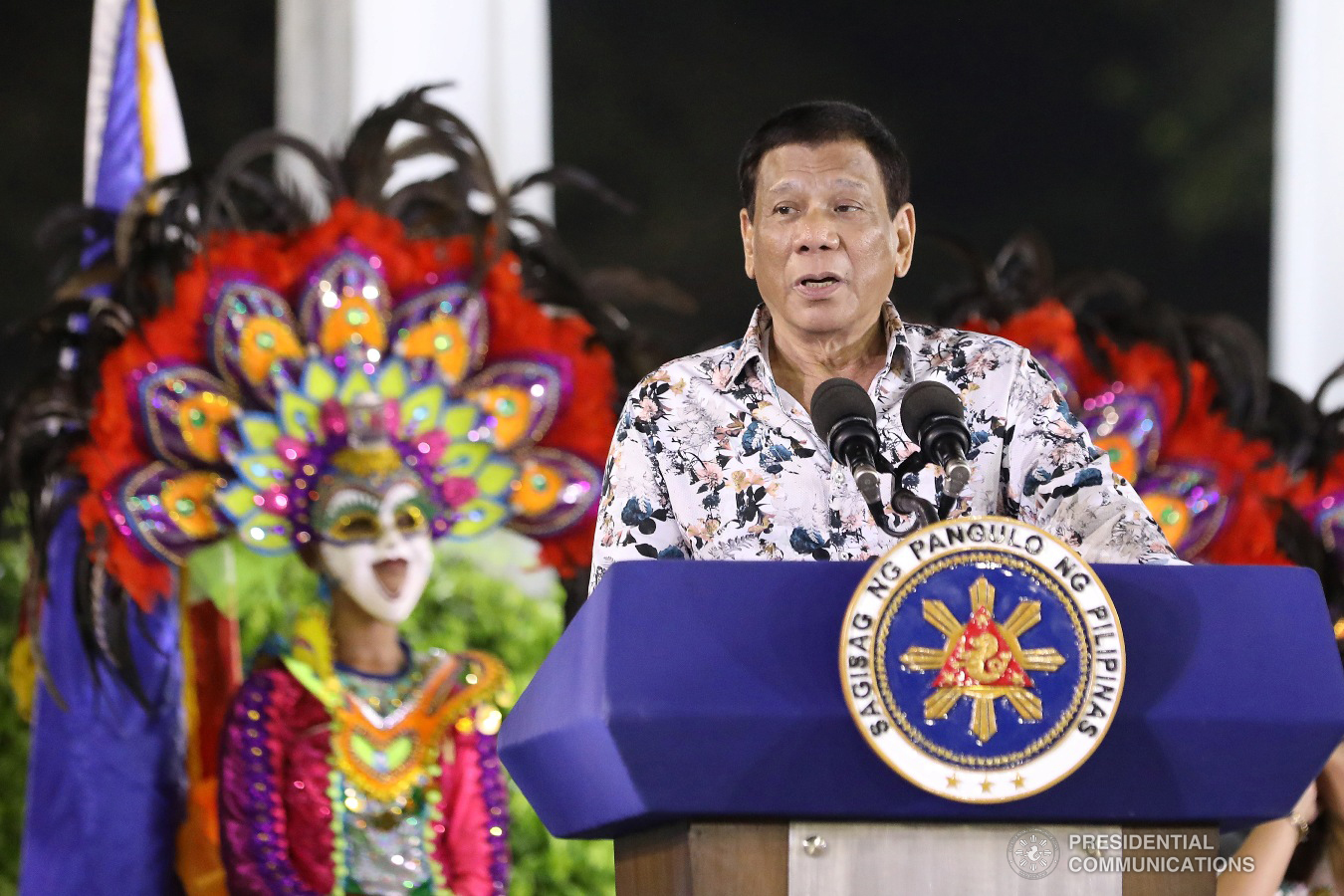PRESIDENT Rodrigo Duterte shuns the idea that drug addiction is a medical condition with a cure. For him, drug users are the “living walking dead” whose brains have already shrunk, and who have become useless to society.
On Oct. 27, in his arrival speech from Japan, Duterte said:
STATEMENT:
“Eh sabi nila, (drug addiction is) a medical problem, susmaryosep. Pati ba kami na nakatapos ng high school, bolahin mo pa ganun. Whoever taught you to buy sickness there? Binibili mo ‘yang shabu.” (They said drug addiction is a medical problem. Whom are you trying to fool?)
(Source: Arrival from Japan, Davao International Airport, Davao City, Oct, 27, 2016. Watch from 26:07 to 26:24)
In earlier statements, he said rehabilitation “cannot be a viable option” for a person whose brain has already shrunk, as they are of “no use to the society anymore.”
(Sources: 3rd Sulong Pilipinas 2016 Convention, Dusit Thani Hotel, Makati City, Oct. 4, 2016. Watch from 25:16 to 25:42; Press Conference in Davao City, Presidential Guest House, DPWH Panacan Depot, Davao City
Aug. 21, 2016. Watch from 1:08:13 to 1:08:39)
FACT:
Is the president correct in his claim?
Republic Act No. 9165 or the Comprehensive Dangerous Drugs Act of 2002 defines drug dependence as a medical condition, using the definition of the World Health Organization as basis:
It is “a cluster of physiological, behavioral and cognitive phenomena of variable intensity, in which use of psychoactive drug takes on a high priority thereby involving, among others, a strong desire or a sense of compulsion to take the substance and the difficulties in controlling substance-taking behavior in terms of its onset, termination, or levels of use.”
The Dangerous Drugs Board, the country’s policy-making body on drug prevention and control, defines drug addiction as “a complex, and often chronic, brain disease, characterized by excessive drug craving, seeking, and use.”
The UN Office of Drugs and Crime said in its 2010 report that drug dependence is a health disorder, a disease that arises from exposure to drugs.
Resolution II of the Single Convention on Narcotic Drugs of 1961, to which the Philippines is a signatory and party to, “declares that one of the most effective methods of treatment for addiction is treatment in a hospital institution having a drug-free atmosphere.”
(See related story: Is that so? Can we turn military camps into drug rehabilitation centers?)
Article 38 of the convention underlines the need for countries to take measures for “prevention, early identification, treatment, education, after-care, rehabilitation and social reintegration of drug dependents.”
The law states it is the duty of the state to provide effective mechanisms to “re-integrate into society” individuals who have fallen victims to drug abuse through treatment and rehabilitation.
As of Nov. 3, the police reported 758,377 drug users and pushers have surrendered, 33,105 have been arrested, and 1,790 have been killed.
In a recent interview with CNN Philippines, presidential spokesperson Ernesto Abella said the drug war is now entering its second phase, or a shift from treating the problem as a national security concern to seeing it as a public health issue.
After all, as Health Secretary Paulyn Jean Ubial said, the drug users are “not the enemy.”
Sources:
Single Convention on NarcoticDrugs of 1961 as amended by the 1972 Protocol
UNODC Discussion Paper: From coercion to cohesion
Facts on Drug Use, Dangerous Drugs Board
Article, “Drug war shifts to phase two as public health issue – Presidential spokesman,” CNN Philippines
Press Conference of Secretary Paulyn Jean Ubial, Department of Health, Manila, Oct. 12, 2016
